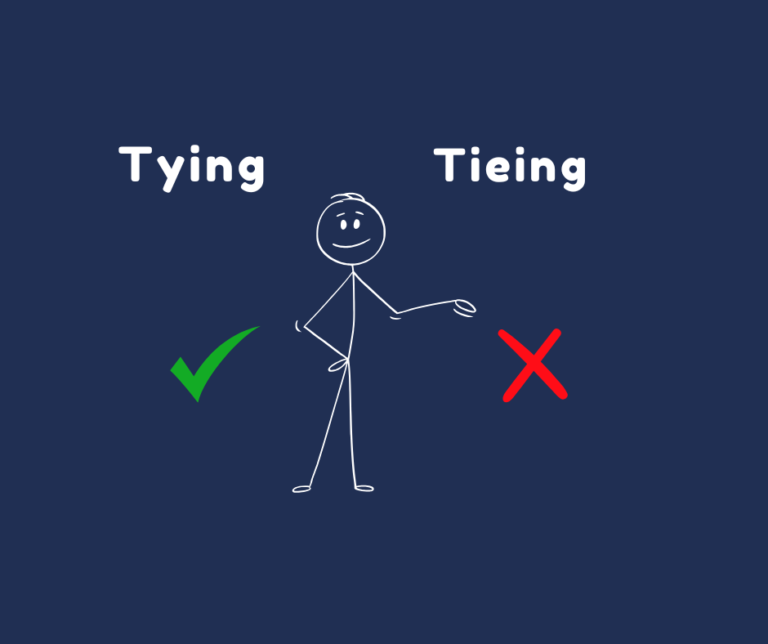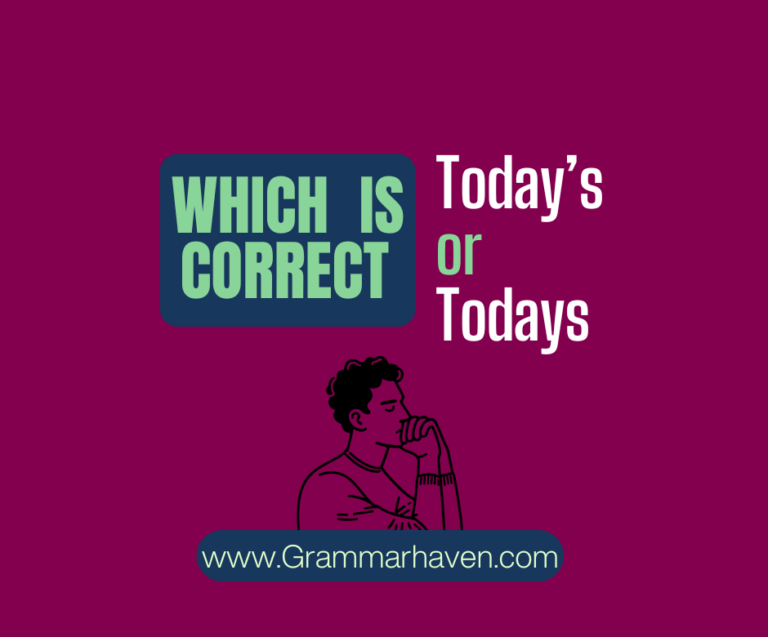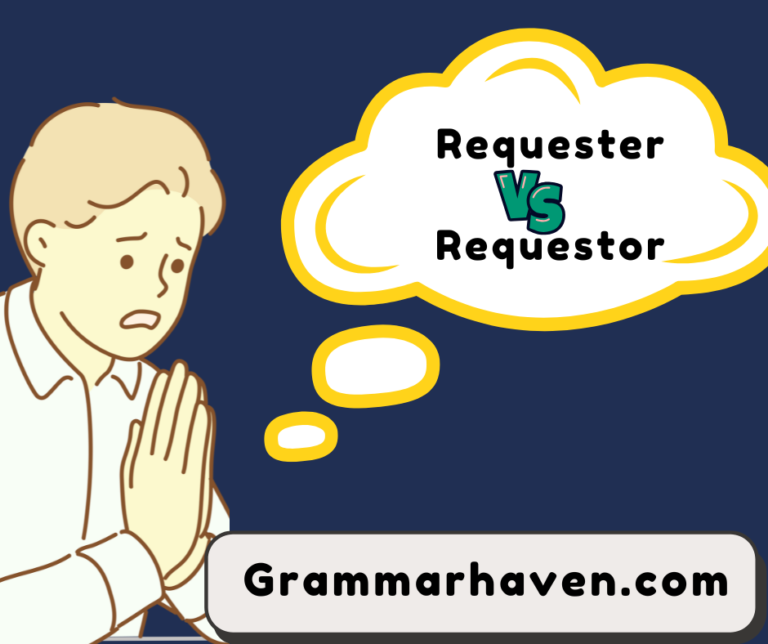Long Term or Long-Term: What’s the Right Choice in Writing?
Word choices shape how we communicate. The difference between “long term” or “long-term” often confuses writers. These similar-sounding words serve entirely different roles in sentences. Your writing becomes clearer when you know how to use them correctly. That makes sense or since you’re reading this article, let’s master these commonly confused words together.

Long-Term vs Long Term: The Basic Difference
The distinction between “long term” or “ long-term” can be a source of confusion. The cause of this confusion is different grammar rules and writing styles , when you’re using it as an adjective versus a noun.
“Long-term” is an adjective
Typically used to describe something that lasts for an extended period, The hyphen connects the words to function as a single descriptor.
Example :“long-term goals” or “long-term investments.”
“Long term” serves as a noun:
It refers to a specific duration or time period rather than describing something.
Example: “I plan for the long term”
But if I say this sentence in a different way like ““I have long-term plans,” it conveys different meaning and it highlights the importance of context in writing.
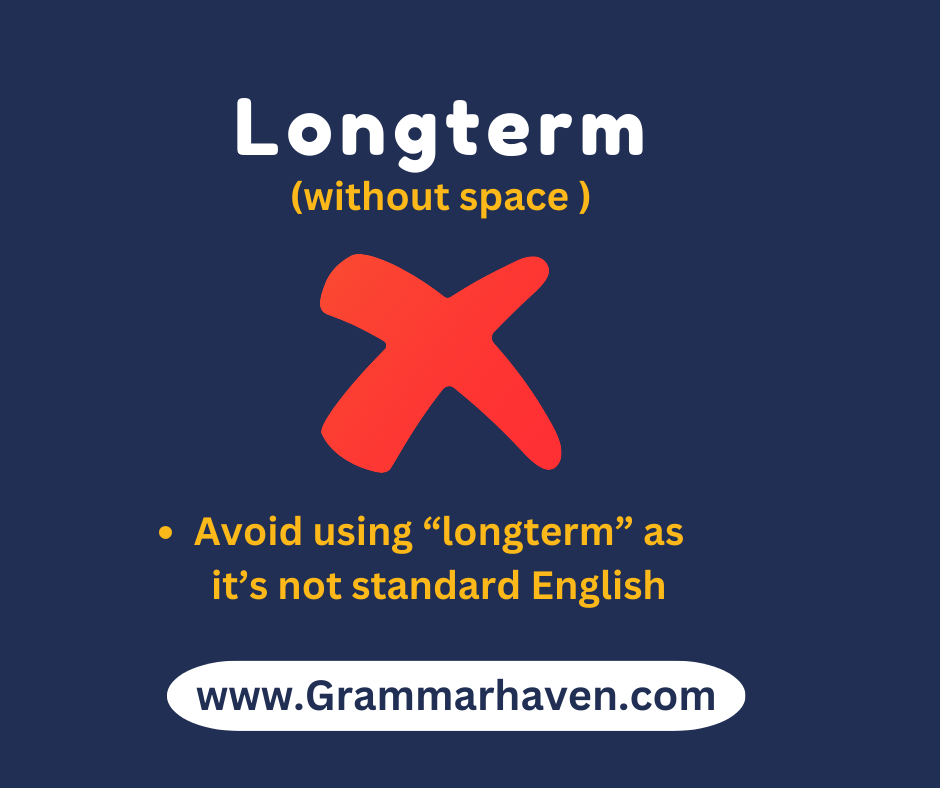
What Does “Long-Term” (hyphenated) Mean?
- The use of “long-term” as a hyphenated adjective describes or modifies a noun and is used to describe a goal, investment, or strategy that spans an extended period.
- Moreover, the hyphen acts as a bridge, it shows that both words together describe a time-related idea. Transforming them into a cohesive unit that conveys specific meaning.
- In phrases like “long-term impact,” the emphasis shifts from the mere notion of time to showing the importance of future planning.
Let’s understand it with an example, considering “long-term strategy,” we are not merely noting its duration; we are emphasizing the thoughtful planning required to navigate complexities over time.
What Does “Long Term” (with space) Mean?
“Long term” (with a space) act as a noun phrase and refers to an extended period of time. It refers to something that happens over a long duration. It does not modify a noun like “long-term ,” and stands alone representing the actual concept or idea of planning or thinking over a significant duration.
For example:
He is focused on his long term success as an entrepreneur.
This example reflects that someone may plan for the long term by thinking about future goals instead of immediate results.
Note: The term “longterm” (without a space or hyphen) is not correct in standard English. It might appear in casual writing, but it is not accepted in dictionaries. The right choices are “long term” (as a noun phrase) and “long-term” (as an adjective). Using “longterm” can cause confusion.
source : Merriam-webster
Synonyms For “Long Term” or “Long-Term”
Using a variety of synonyms can add variety to your writing and will help you to understand the clear meaning of both terms “Long Term” or “Long-Term”.
Synonyms for “Long Term” (Noun Phrase)
- Long haul
- Duration
- Prolonged
- Endurance
- Future outlook
- Lengthy span
- Long-range
- Sustained period
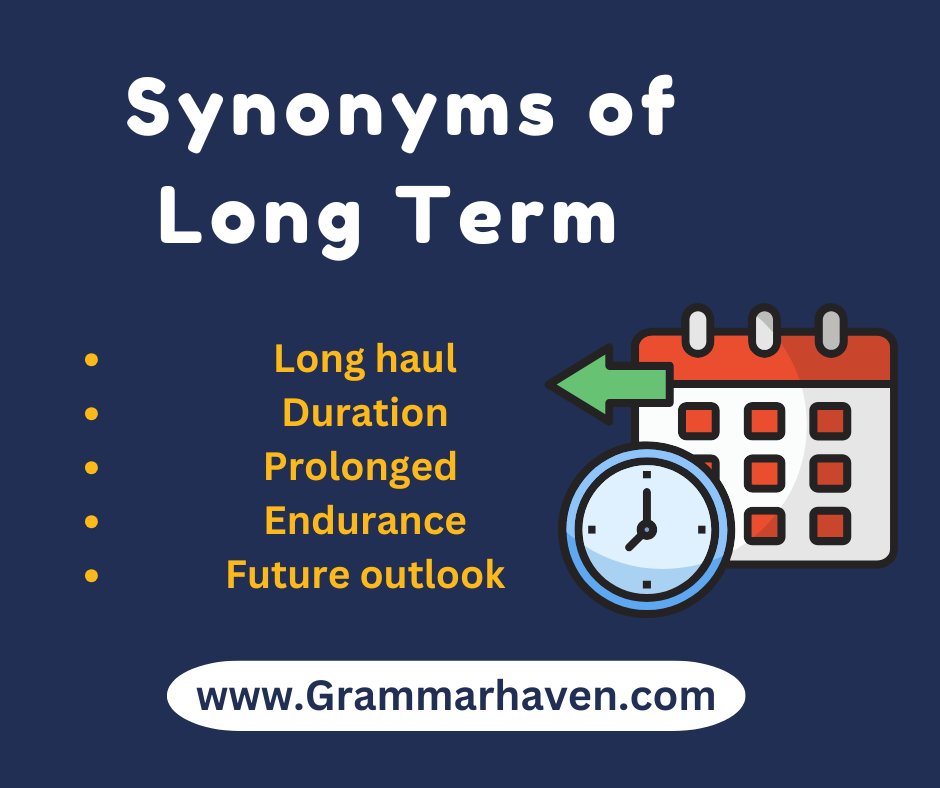
Synonyms for “Long-Term” (Adjective)
- Extended
- Enduring
- Lasting
- Permanent
- Continuous
- Long-range
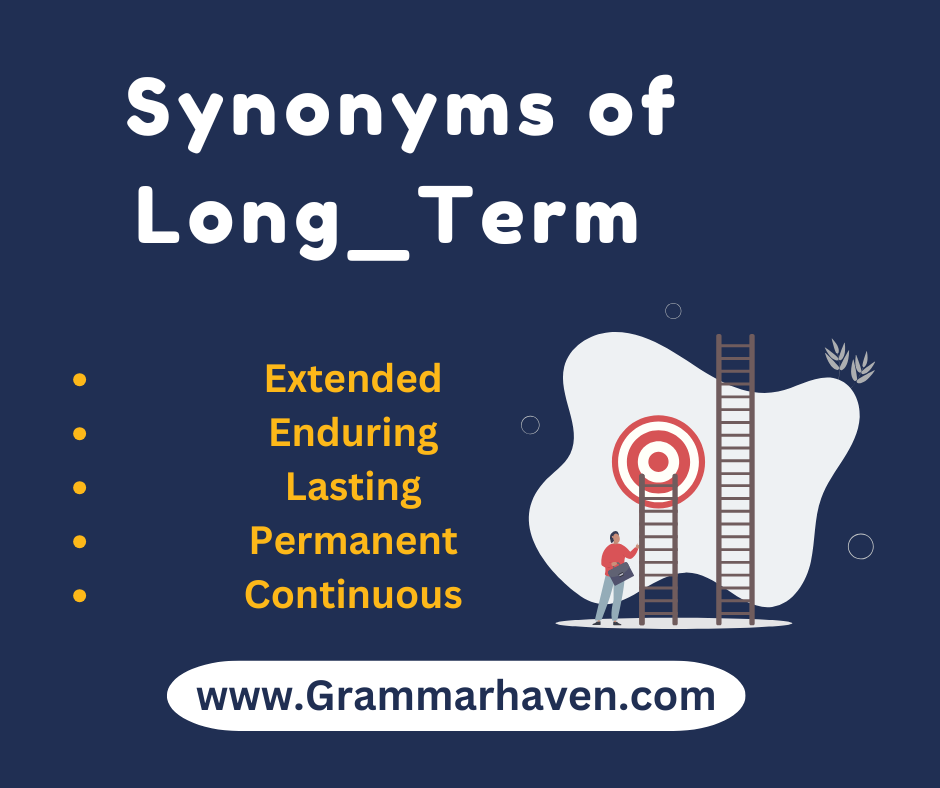
You may also like to read “Arose or arised. “
Examples in Context
Here are a few examples to show how long term (noun phrase) and long-term (adjective) are used in sentences . These examples will help you better understand how to apply each form correctly.
Examples Using “Long Term” (Noun Phrase)
- For long term benefits you may Invest in real estate.
- The long term of this project requires careful planning and execution.
- He is more focused on the long term rather than short-term gains.
- The company’s success in the long term depends on strategic decision-making.
- They are considering the environmental impact over the long term.
Examples Using “Long-Term” (Adjective)
- He is looking for a long-term investment opportunity.
- The company’s long-term strategy focuses on sustainability.
- Long-term exposure to pollution can harm your health.
- She signed a long-term contract with the supplier.
- The doctor recommended a long-term treatment plan.
Incorrect Usage:
- Longterm investment – Without the hyphen, this term is technically incorrect.
- When describing a strategy, it should be a long-term strategy, long term strategy would be considered wrong.
Correct Usage:
- when the term acts as a compound adjective (modifying a noun) ,always use the hyphen
- Drop the hyphen when referring to the concept or idea as a noun.
Note: Avoid using “longterm” (without space ) as it’s not standard English.
Origins of “Long Term” vs “Long-Term”
Origins of “Long Term”
The phrase “long term” comes from Middle English, where:
- “Long” meant an extended duration.
- “Term” referred to a fixed period.
- Over time, it began to describe extended time frames, especially for plans or objectives spanning months, years, or decades.
- It is widely used in finance, business, and personal planning to indicate a focus on future outcomes rather than immediate results.
- The term has now become significant in different contexts like discussions about goals, investments, and sustainability.
Origins of “Long-Term”
The adjective “long-term” first appeared in insurance underwriting in 1876.
It was formed by combining:
- “Long” (adjective) – meaning extended duration.
- “Term” (noun) – referring to a fixed period.
- A hyphen was used to create a compound adjective, ensuring it functioned as a single descriptive unit.
- Initially, it was used to describe prolonged durations in insurance policies and financial contexts.
- Over time, it was broadly adopted to describe investments, strategic plans, health, and environmental impacts.
- The hyphenation helps distinguish it as a single concept rather than two separate words.
A Final Look at “Long Term or Long-Term”
- The use of “long-term” as a hyphenated adjective describes or modifies a noun and is used to describe a goal, investment, or strategy that spans an extended period.
- “Long term” (with a space) act as a noun phrase and refers to an extended period of time
- It refers to something that happens over a long duration.
I hope you learned the correct usage of long term or long-term after reading the guide thoroughly and now you will be able to communicate more clearly. remember that in professional and casual writing alike, getting these small details right can make a big difference in how your message is received.
FAQ’S
What is correct, long term or long term?
‘In the long term’ is always unhyphenated (it’s just an adjective + noun, like ‘the tall man’). ‘Long-term’ as an adjective (‘long-term illness’) or adverb (‘I won’t be doing this long-term’) can be hyphenated or unhyphenated – the only rule is to be consistent within a text.
Should there be a hyphen in long term?
The use of “long-term” as a hyphenated adjective describes or modifies a noun and is used to describe a goal, investment, or strategy that spans an extended period. while long term ( without hyphen) refers to a specific duration or time period rather than describing something.
Example: “I plan for the long term.”
What is a better word for long term?
abiding, continuing, everlasting, indelible, lifelong, longstanding, permanent, stable ,deep-rooted, durable.
Is “in the long term” correct?
You would normally say “in the long term.” You would say “in the longer term” if you were talking about several different time frames. Situation A: “In the long term, we’ll need more space.” Situation B: “We’ll need more instructors right away.




